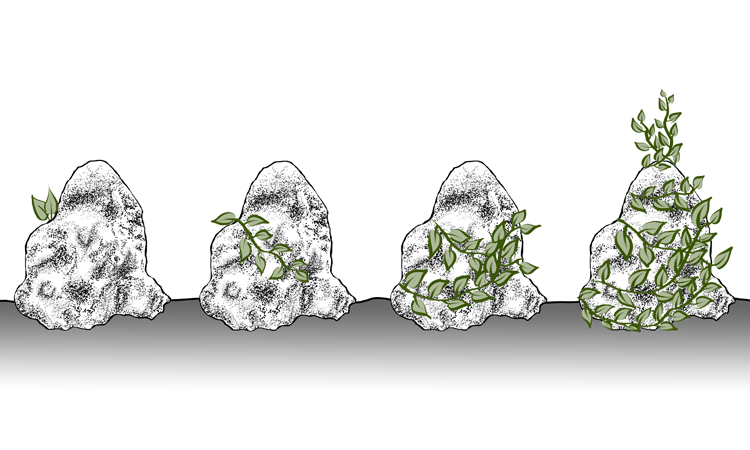A Work in Progress: Growth vs. Fixed Mindsets
After AP Psychology classes discussed the differences between a fixed and growth mindset, the CT decided to investigate the effects of these mindsets on the psyche of Central students, as well as the different ways District 203 is implementing these ways of thinking.
Fixed Mindset
People with a fixed mindset believe that inherent intelligence is affirmed by success, according to Dr. Carol Dweck, a Stanford psychologist who is chiefly attributed for knowledge on growth and fixed mindsets, according to BrainPickings.org.
Expanding on this, someone with a fixed mindset believes he or she can only achieve a certain level of success, and that their skills and abilities are finite.
“There’s only so good [someone with a fixed mindset] is going to get,” Cindy Tilt, psychology teacher, said. “Along with this, if [someone with a fixed mindset] tries something and fails, it’s threatening.”
These people live their lives within a predetermined set of rules that are unmoving and unchanging, without any possibility of growth.
Growth Mindset
For people with growth mindset, there is no such thing as a limit to one’s abilities, capabilities or skills. There is always room to improve and one can always be successful if time and effort are put in.
Instead of desiring approval, people with growth mindset have a passion for learning, according to BrainPickings.org in an article about Stanford psychologist Dr. Carol Dweck’s book “Mindset: The New Psychology of Success” on fixed and growth mindsets.
“People with a growth mindset believe they can do anything they set their mind to,” Cindy Tilt, psychology teacher, said. “They see failure as [an opportunity] to learn.”
Additionally, people with growth mindset see stress as a friend. Rather than feel panicked when their heart rate increases, they feel motivated and excited for a challenge.
On Feb. 27, math teacher David Sladkey handed out one card to each of his students. The cards were blank on one side, but on the other side, each card had a different adjective on it, describing a trait of the student that Sladkey admired. No student got an adjective that was the same as one of his or her peers’ in the class.
Senior Mitchell Hale received a card with the adjective “Hopeful” on it during his pre-calculus class.
“The cards are a good way for teachers to show positive reinforcement among their students,” Hale said. “Because at times kids think, ‘Oh, my teacher doesn’t really like me’ [or] ‘I’m just bad at this,’ and I think getting a card with a positive word on it can make it click in the student’s brain that ‘You’re not as bad as you think.’”
In his class, Sladkey tries to inspire his students to work hard and be determined. In other words, he tries to cultivate the essential characteristic “grit.”
“Grit is passion and perseverance for very long-term goals,” Angela Lee Duckworth, a psychologist who studies grit, said in a Ted Talk. “Grit is having stamina. Grit is sticking with your future, day in, day out, not just for the week, not just for the month, but for years, and working really hard to make that future a reality.”
Grit is present in District 203 — from Sladkey’s classroom at Central to Ranch View Elementary School.
In 2014, “Got Grit?” was the theme for Ranch View’s school year.
“Several studies have shown the positive relationship between Grit and high achievement,” Sue Salness, Ranch View’s principal, wrote in the Ranch View Review, the school’s parent newsletter. “Grit is defined as having resilience in the face of failure and demonstrating a deep commitment to long term goals. A students’ ability to demonstrate Grit is also very much dependent on having what we refer to as a Growth Mindset.”
In order to foster this, Salness encouraged parents to work on goal-directedness, motivation, self-control and positive mindsets at home.
“Our data show very clearly that there are many talented individuals who simply do not follow through on their commitments,” Duckworth said. “In fact, in our data, grit is usually unrelated or even inversely related to measures of talent.”
However, teaching grit is difficult in the classroom. Duckworth has found that having a growth mindset can aid students in developing grit.
“In school, [growth mindset] lets students [know that] they can do something [they’re struggling with] and that they can set goals to improve,” Cindy Tilt, psychology teacher, said. “Growth mindset is about progress, not achieving a product… you are a work in progress and you can never […] achieve perfection.”
Sladkey was inspired to incorporate growth mindset into his classroom after reading the book “Mindset: The New Psychology of Success” by Carol Dweck, the Stanford psychologist chiefly recognized for defining growth mindset.
“[Dweck] had scenarios that described growth and fixed mindsets in education,” Sladkey said. “For instance, you [might] have a parent that says, ‘I’m bad at math’ […] There’s no doubt that [this mindset] rubs off on the student […] I think that in our class, we need to have that mindset that ‘anybody can do it.’”
During his classes, Sladkey tries to motivate his students by telling them a parable or quote that spurs discussion. He also shows them videos about grit, because he believes they help students become more motivated.
“If you want to know what goes on in our classrooms day to day, it’s like groups, we’re almost always talking, we’re almost always sharing out,” junior Angelina Lee, a student of Sladkey’s, said. “It’s not uncomfortable, because everybody gets brought up to the board every single day, which is really nice. And you talk about stuff that’s not only math, and you always, always keep the end goal in mind.”
Growth mindset and grit are very closely tied when it comes to success. This marriage is so significant that Tilt cites growth mindset as one of her top three factors of success in life.
“If a person has work ethic, passion and understands ‘I can do whatever I want,’ they will be successful,” Tilt said.
In other words, growth mindset and grit teach students that they are a work in progress and can succeed no matter what.
Your donation will support the student journalists of the Central Times by helping to fund publication expenditures.

“The difference between the almost right word and the right word is really a large matter—it's the difference between the lightning bug and the lightning.” - Mark Twain
Contact Information:
[email protected]

"Leap and the net will appear." ~John Burroughs
Contact Information: [email protected]

"Happiness can be found, even in the darkest of times, if one only remembers to turn on the light."- Dumbledore
Contact Information: [email protected]



